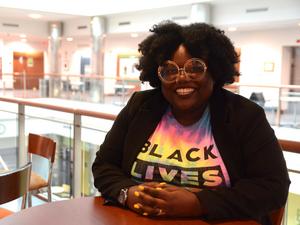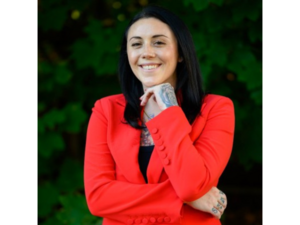
A state legislative proposal that aims to protect women and underrepresented founders from discrimination and sexual harassment is back on Beacon Hill.
The bill (SD.1142) would make it unlawful for a professional investor in Massachusetts to engage in sexual harassment or discriminate against someone belonging to a protected class, including on the basis of race, gender, pregnancy and sexual orientation. These protections would apply to people funded by an investor or being considered for investment funding.
State Senator Cindy F. Friedman, an Arlington Democrat, first filed this bill in the 2019-2020 legislative session and filed it again in the 2021-2022 session. Friedman said the most recent version of the bill includes changes she hopes will help move it forward into law.
Past versions draw criticism
From the beginning, the purpose of the bill was to ensure investors were held to the same standards as other employers and workplaces. A similar bill went into effect in California in 2019 that made sexual harassment between venture investors and startup founders illegal.
Supporters of the bill argued that legislation could help increase the amount of venture capital funding that underrepresented founders receive. In 2022, Black founders in Massachusetts raised 0.56% of the total $19.5 billion in venture capital that went to Bay State companies. Latino founders raised 3.4% of the state’s venture capital total. Nationally, women-founded startups raised 1.9% of all VC funds last year.
“We want to make sure it’s not because of discrimination or an unfair playing field,” Friedman said.
However, the first iteration of the bill received some pushback from the venture capital community.
The New England Venture Capital Association (NEVCA) did not support the bill in 2019, saying it feared there would be “unintended consequences” for founders. Then-NEVCA president Jody Rose said the legislation could lead to investors taking fewer meetings with underrepresented founders. In other words, investors could be concerned that declining to invest in an underrepresented founder might lead to discrimination charges. The bill died in committee during both sessions.
Third time’s the charm?
As the Legislature enters a new session, Friedman has refiled the bill with a few changes she thinks will help assuage concerns.
This latest version of the bill notes that only the attorney general can bring a discrimination case against a venture capital firm, per a spokesperson for Friedman’s office. A sexual harassment case could still be brought by anyone. Additionally, the Massachusetts Commission Against Discrimination would be tasked with creating the compliance guidelines for professional investors.
“When these guidelines are set, as long as you have guidelines in place for following those guidelines, you’re showing good faith, that’s an affirmative defense if someone claims discrimination,” Friedman said.
The state senator added that it didn’t surprise her that the bill didn’t pass the first time because “it is this concept that people don’t really think about.”
In an email to BostInno, Ari Glantz, executive director of the NEVCA, said the organization was “still in the review process for all the bills that were recently filed and may impact the inno community.”
Glantz declined to speak further and said the group is typically “able to provide more in-depth perspective after the bill hearings and diving into the text.”
The next step for the bill is to be assigned to a committee and brought to a public hearing.
Long-overdue legislation
Tasneem Dohadwala, a founding partner at Boston-area Excelestar Ventures, said this type of legislation is important.
“It seems a little late, but better late than never,” Dohadwala said. “I think that it’s a very strong step in the right direction.”
Dohadwala said venture capital has operated largely as a “wild wild West” for decades with little oversight.
This lack of oversight can manifest in different ways — from the investors who poured millions into Sam Bankman-Fried’s FTX with few strings attached, to, more generally, venture capitalists who rely on a gut feeling when investing in founders. Those gut feelings can be rife with biases, Dohadwala said.
“Sometimes something as simple as somebody’s voice can throw an investor off. I’ve seen it happen. Like they don’t sound as professional as maybe that person is used to hearing,” Dohadwala said. “But if you’ve been used to hearing, for example, a male voice all the time, maybe a high-pitched female that talks really fast sets you off and doesn’t make you feel comfortable.”
Dohadwala said legislation like this could push investors to re-evaluate the diversity of their deal-sourcing pipeline and unpack why they’re deciding to fund or not fund startups. It might cause some investors to become a “little gun shy” with their meetings with underrepresented founders, Dohadwala said, but hopefully it will also help initiate a change in venture capital funding.
“I think legislation is just the beginning. I think that there’s still a lot of cultural change that needs to happen. And I think that some of it is happening, but I think we still have a long way to go,” Dohadwala said.
Sign up for The Beat, BostInno’s free daily innovation newsletter from BostInno reporter Hannah Green. See past examples here.








